As you read this, there are 13 warships in build or being procured at Scottish shipyards. However, there are thousands of real people on social media that would promise you that no ships are being built – but why?
I’ve even had people on Twitter tell me no ships were being built at Govan… whilst I was standing on one. That 13, by the way, is not counting the now built 5 Offshore Patrol Vessels, the planned Type 32 Frigates or the planned Ukrainian Naval vessel.
This article is the opinion of the author and not necessarily that of the UK Defence Journal. If you would like to submit your own article on this topic or any other, please see our submission guidelines.
During the run-up to the 2014 Scottish independence referendum, political campaigners hoping that Scotland would remain part of the United Kingdom made a big deal about the then-planned thirteen Type 26 Frigates the Clyde was to build. Those Type 26 Frigates ended up delayed, of course, and to fill the gap one batch of two and another batch of three Offshore Patrol Vessels were ordered to keep the workforce skilled and employed.
Then the 2015 Strategic Defence and Security Review came, and long story short it resulted in the change from thirteen Type 26 frigates to eight Type 26 Frigates to be built at Govan and five Type 31 frigates to be built at Rosyth. Due to commercial considerations, budget issues and a delay to work starting on the new frigates… thirteen ships at one yard became eighteen at two yards.
More work for more people at more locations, that’s a good result isn’t it? The shipbuilders seem to think so. I spoke to a contact who wishes to remain anonymous, he told me:
“This is great for the industry, a second yard building complex warships keeps more people in work and sets the yards up for larger programmes of follow-on work. It’s no secret that we’ll likely be building the Type 45 replacement, we’ve got work for decades and now so does Babcock at Rosyth.”
Well, if all is so good why am I writing this? Because despite this information being easily verifiable and heavily reported, people seem unaware of it. A good example would be the comments under any shipbuilding article we publish. Even in response articles detailing which ship will be built where, when the contract was signed, what type it is etc we’ll still get comments repeating one of the myths from people that haven’t read the article.
‘We were told this in 2014!’, ‘The ships were cancelled!’ or ‘More lies from Wastemonster’, anyone?
It finally happened, we've went full circle. A comment like this has appeared on article discussing comments like this. pic.twitter.com/4PzJriUpdI
— UK Defence Journal (@UKDefJournal) November 4, 2021
For more on those myths, have a look here. It’s a list of the most common ones I encounter.
I even made a video about it.
So, why is this happening?
Jonathan Chartier, a defence commentator, took a detailed look at this. He said that one key issue that has had significant influence over the often torrid debate when it comes to military ship building in Scotland is the reduction of the Type 26 procurement from thirteen to eight vessels.
The danger of politicising military shipbuilding in Scotland
“The often passionate arguments from those who support and oppose Scottish independence makes a balanced view of military ship building in Scotland and its future difficult as it can often end up with people shouting their ‘preferred’ facts at each other over social media rather then examining the issues. With warship construction consolidated on the Clyde Type 26 was projected to be a build of thirteen vessels again through multiple batches in keeping with common practice, for those familiar with military ship building the thirteen projected was at best a placeholder subject to change.”
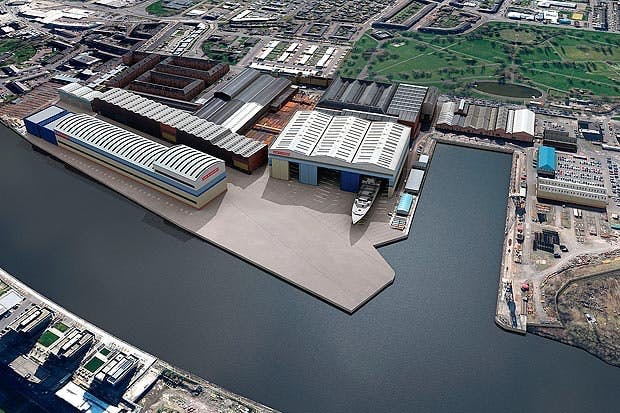
“Certainly it was well known in the period after the 2010 Strategic Defence and Security review it was clear that the equipment programme was again coming under extreme financial pressure again. In that circumstance it was unfortunate with a Scottish Independence referendum in the running David Cameron and the Better Together campaign unwisely turned routine procurement that could be subject to change into a political football by making it a direct promise to Scotland; thirteen Type 26 Frigates would be built on the Clyde alongside a new ‘Frigate Factory’. The Labour Party exacerbated the situation with a leaflet spelling out that if Scotland remained in the Union it would get 13 Type 26 frigates. The Prime Minister and other Ministers plus representatives of the Better Together Campaign regularly spelled out that a Scotland in the Union would be getting thirteen Type 26.”
Chartier explains where the idea that promised have been broken has come from.
“So when the referendum was over and won for Better Together, the reality that Thirteen Type 26 was not deliverable within the allocated budget set in. A few months after cast iron guarantees for thirteen Type 26, the order was cut to eight as part of the 2015 Strategic Defence and Security with a compensatory order for five General Purpose frigates proffered and some Offshore Patrol vessels ordered in their place.
Considering what was promised in very clear terms by the Prime Minister, Better Together and other Parties including Labour it is understandable why Scottish Nationalists have fixated on it as a totemic issue. Put simply thirteen Type 26 was a core promise by Better Together in the Independence campaign that has been, technically, broken. Of course the more nuanced point to be considered is that Scotland gained five River class Batch II Offshore Patrol Vessels and five Type 31 Frigates (plus a ‘frigate factory’ in Rosyth) as compensation for the loss. For a look at what Scottish shipyards are planning on building, this UK Defence Journal article goes into detail.”
He concludes, “Sadly this angry debate is set to continue with accusation, counter accusations and many a myth spun but in all this it does show the danger of politicising military shipbuilding”.
The change from thirteen Type 26 to eight Type 26, framed as a broken promise by some, has grown arms and legs and turned into the claim that no ships are being built in Scotland. People are, sadly, so confident of this that even in response to a photo of a ship being built on the Clyde… they are keen to argue that no ships are being built on the Clyde.
It seems very clear that social media, rather than the people using it, is to blame.
Social media encourages echo-chambers in which confirmation bias runs rampant. Essentially, people are shown news items that confirm what they already believe. Our social media feeds are personalised based on past clicks and likes behaviour, so we mostly consume political content that are similar to our views.
Without realising it, we develop tunnel vision.
Rarely will our comfort zones expose us to opposing views, and as a result we eventually become victims to our own biases. There are some studies that measure echo chamber effects, such as the study of Bakshy et al. (2015). In this study, they found that people tend to share news articles they align with. In addition to this, they discovered a homophily in the friendships online, meaning people are more likely to be connected on social media if they have the same political ideology.
This isn’t unique to Scotland, or shipbuilding, or any political party. It is a symptom of how social media influences debate. I don’t know how to fix it, I only know that it should be fixed.


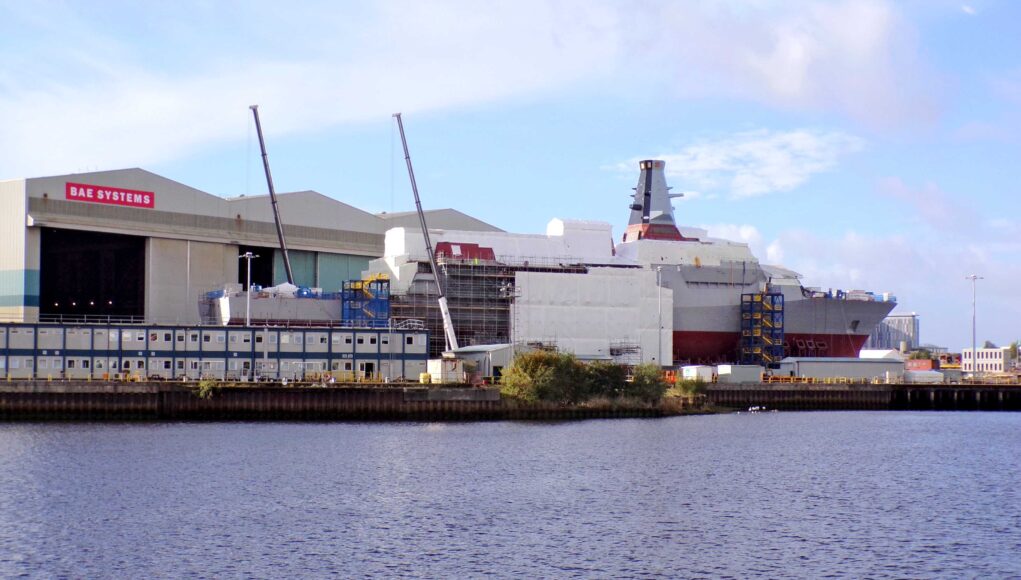
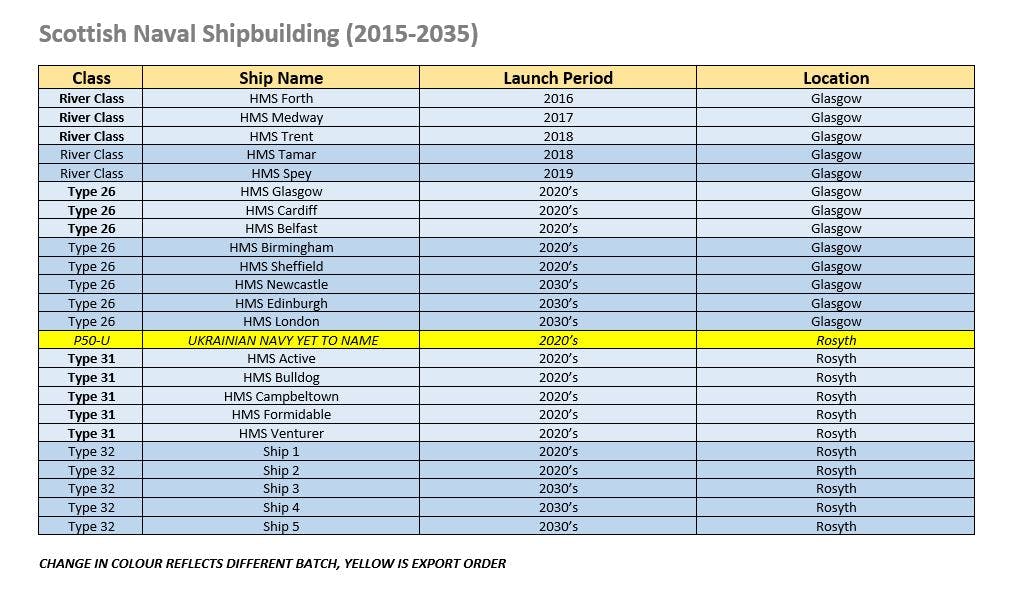
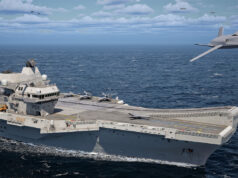

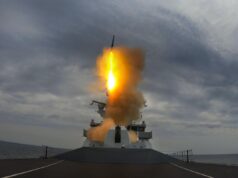
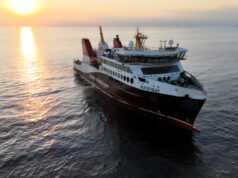
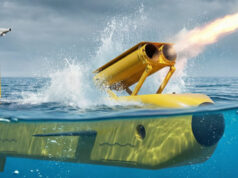
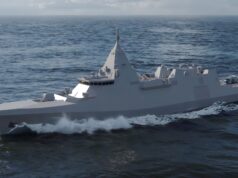


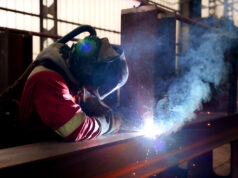
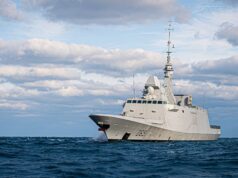

Whilst I agree social media is definitely an echo chamber, I don’t think we can absolve ourselves of responsibility. We all need to be more responsible for our own thoughts and posts, whether it be how they are worded, or that we check our facts.
Sad but true article. But this is not new news, surely most people with a double digit IQ are aware of this echo chamber phenomenon. Perhaps social media apps should have a IQ test on sign up 🙂
Excellent artical George, My take on it is that the SNP are deliberately turning a blind eye on the social media negativity as it plays into their game plan as they do not want it as common knowledge of just how much Scotland profits from building ships for the RN and just how much it will lose by gaining independence.
I just wish the government would promote more yards all over the UK (Belfast and the NE England) so we could build ships quicker and have a built in safety system “If” Scotland dose decide to get its independence.
Great suggestion Steven, how many parts of the UK do you think you can spread 13 frigates around? Especially if you have to spend billions to re build yards that have not built complex warships in decades and in almost all circumstances no longer exist as ship yards. Where are you going to find several thousand skilled ship builders in Belfast and Newcastle or are you planning to move them from Glasgow and Fife? Do you think many people would choose to move to Newcastle and Belfast for a laugh or do you think you might have to pay them a lot of money to go?
Hello Martin, Its not going to happen over night granted but if we are to reduce the time it takes to build a vessel and compete with the rest of the EU and America who both have a build rate of 5 years for a Frigate/Destroyer sized vessel there-by reducing the cost of the build we have to open more yards, The people from Newcastle and Belfast moved to Scotland to find work in the ship yard there!!!
The opening/reopening of yards South of the border must be part of the National Shipbuilding Strategy and not be used a a political football to keep the SNP at bay.
Yes I fully agree with you, let’s just not bother with the RAF and the army and churn out frigates every 5 years to some how save money. Also Swan Hunter shut down 15 years ago and H&W ain’t built a ship since 2003. Do you honestly think there are ship builders sitting in Glasgow and Edinburgh now desperately waiting for ship building to resume so they can run back to Belfast and Newcastle? I don’t understand your point on 5 years and 10 years. Are you saying we should sell on our warships after this long in service? You do know it normally takes us that long just to get them working. Look at T45 we still have not worked our the kinks. More yard and more workers equals more money and we don’t have a magic money tree. We can’t event get enough semi skilled labour to drive trucks so god knows where you think you will find thousands of people looking for skilled metal cutting jobs that won’t be gobbled up by more lucrative jobs in oil and gas and offshore wind which is likely where all the ship builders from Newcastle and Belfast already went.
The build time should be cut in half from 10 years as it is at the moment to 5 years as in the yards of Southern Europe and America there-by reducing construction costs.
Belfast and Newcastle still produce ships just not for the RN, they are both bidding for the new RFA’s (when and if they are ever ordered) so there would not be a vast exodus for Scotland to the South.
Right, and keep these multiple yards running how? All well and good saying get H&W/Devonport/Birkenhead/A&P building ships but just how many ships are going to need to be ordered to ensure the huge costs of upgrading and modernising them aren’t going to be wasted? Say an average 2/3 year build in dock and another couple for fitting out, trials and commissioning, that’s four ships needing ordering every other year basically or one per yard per four or five years if stretching it out, not preferable for numerous obvious reasons, and with a 25 year lifespan (assuming they are cheap enough, good enough and competitive enough on the market for smaller navies to snap them up) that’s five or six extra frigates in a cycle for each yard. Twenty at a minimum, something like three dozen on a less drawn out build schedule.
Today, at most, there’s probably enough wiggle room to maintain four yards between the surface, subsurface and auxiliary fleets. Problem is this requires going back decades to get the drumbeat going to get to the four yard number today.
Short of us entering an alternate reality where British shipbuilding was more efficient, capable, self reliant, advanced and admired into the 60s and 70s and still was held in good regard up to modern day, what we have is probably it. The yards are too dependent on either Govt contracts (Clyde, Barrow, Ferguson) or are repair and maintenance yards (A&P, H&W) that probably wouldn’t know where to even begin to begin with a frigate.
TL;DR: essentially there isn’t the numbers in the Royal Navy anymore to split between loads of yards and spending money on an English yard just in case wouldn’t fly at all.
Hello Ryan,
Granted it is not going to be an easy option but with commitment from the government with RN/RFA orders within a national shipbuilding strategy that combined with a sheared approach along the lines of the aircraft carrier alliance we could have multiple yards building in conjunction with each other. If we are seen as a credible and competitive option for complex builds then we will win overseas orders as well but to do this we have to keep the build rate for Destroyer/Frigate sized vessels to within 5 years (as they do in Sothern Europe and the USA).
On top of that if there is a good reliable work force with a modern yard then the civilian orders will help supplement the yards orderbooks.
I wish could get away from this word – ‘Independence’. Scotland is a more than equal part of a Union, so leaving that Union would be Secession.
A good point entirely lost on the Nationalists. Just look back over the last 150 years and see how many Prime Ministers and senior Ministers of the Crown were and are Scots. Facts will not shift ideologues.
That sounds like some ideology
leaving that Union would be Secession.
have not countries been dragged to civil war over Secession,
just a thought
“Scotland is a more than equal part of a Union…”
Oh now that did give me a good laugh😂
Perhaps the Scottish people just want their country to be sovereign and take back control of their border?
Vote leave?
Don’t drink at the keyboard, you are liable to make yourself look silly.
In this equal part of the Union our elected politicians have been.losing their voice to Westminster MPs voted in by an electorate in another country to stand in a different legislature.
Perhaps to save time and misunderstanding you could give examples of where the Scottish Government has overuled Westminster to pass legislation wanted in Scotland.
To ensure balance you could also list the many times Westminster has ignored and overridden devolved decisions.
The same thing is happening in Wales with devolved powers in the field of industrial relations.
A quick look at NI will show 75% of Stormont representatives being overridden by the UK government and the DUP.
Do not kid yourself about “more than equal partners.”
How to fix it – keep publishing articles such as this so that at least there are some verifiable facts😀. Keep up the good work.
Oh do keep up the Nats dont what to know, and if they did they would deny it
The explanation is quite simple. Scottish Separatists are prepared to outright lie through their teeth to achieve their objectives. This would be bad enough if it was your average social media goon typing away in their basement, but this is encouraged and practised by the elected SNP politicians..safe in the knowledge that they won’t be called out for it by a mostly bought off, compliant Scottish journalistic profession, who just don’t hold the SNP to account, for fear of damaging the cause…and they can simply ignore ‘the yoons’ that do call them out on their lies. Scotland is in a pathetic state.
Or maybe no one in the electorate actually cares and it’s a total non issue. Or maybe that so many lies and mistruths were stated by the better together campaign than everyone just assumes every promise they made was a lie. Indeed I think the frigate promise was the only one actually upheld although it was many years late with multiple caveats.
Sure all the noise and myths aren’t coming from Scottish nationalists trying to convince the Scottish population that they are getting a raw deal? A major factor in Scottish yards obtaining so many orders was the Conservative Government’s desire to buy off Scottish voters in the lead up to the last independence vote. They sure didn’t award all those contracts to BAE Systems on the basis of value for money or on the basis of speedy delivery! So much for the NATIONAL Shipbuilding Strategy.
Hello Anthony, Spot on, If we had a national ship building strategy we would be turning out vessels every 5 years not 10 years as it is at the moment, this is doubling the price per unit also we should be using yards from all over the country and not using the building of RN vessels as a political move to keep the SNP at bay.
Where does the money come from this? After slicing off the only major defence product made in Scotland or does Scotland get to have its own jet fighter production or nuclear submarine building yard like England or do we get to make missiles like Northern Ireland or wings like Wales or are you just planning to punish people in Scotland for no apparent reason other than the place they were born?
Hello Martin, No one is suggesting closing down the Scottish yards they are a centre of excellence for the UK’s ship building industry but we need more yards open, and have a nationals strategy for the building of RN/RFA vessels at a competitive price so that the UK can afford to build more vessels there by keeping the yards in production for the foreseeable future.
The last surface warship (escorts) built anywhere in the UK for the RN outside of central Scotland was at swan hunter in 1993 in a yard that no longer exists. There is literally no other choice for the UK government. Can you tell me how this represents buying off Scottish voters? When was the decision to buy off these Scottish voters made? 1993? If so that is some unusual foresight for the British government. You complain about Scottish Nationalist making crap up to suit their point then do the exact same. Do you not see how your part of the same problem?
There are several alternatives in England and Northern Ireland such as A&P in Falmouth, Harland & Wolf in Belfast and Appledore, Babcock in Devonport or a combination thereof. The Type 31’s could have easily been built in the covered yard in Appledore for instance. So, there are always alternatives, which is one of the take aways of the National Shipbuilding Strategy. The main conclusion is the distribution of shipbuilding so as not to be hostage to too few yards or suppliers to de-risk naval shipbuilding and for optimal value for money.
The timing of the contract awards, the fact that a majority of orders went to a single supplier lends itself to the conclusion of a political dimension wouldn’t you think?
Certainly food for thought. I normally avoid political posts, but I’d offer a few thoughts:
Shipbuilding has obviously become a bit of a political football. Think of it in a similar way to contemporary debates surrounding fishing. Much like the fishing industry, shipbuilding is part of many communities in the UK: they hold a lot of passion for it and want to see their local yards do well. It’s entirely understandable that some individuals are annoyed about the change in direction and to an extent, they have a point. What they need to consider is the fact that the change has effectively resulted in the production of more ships at more yards, with a high probability of follow-up orders. If Rosyth can secure more exports or even support contracts, it will certainly aid the yard further.
However, some individuals cherrypick facts or distort information as part of political point-scoring. It’s not unique to the SNP or nationalist community – everyone does it. We’ve all heard the claims of ‘a growing navy and a dynamic airforce’ when many of us here can list the ships that have been lost or Daniele can list the squadrons that have been cut. This is the same difference: recognising 8 Type 26, but failing to recognise the Type 31, Rivers, Ukrainian vessel, or potential for Type 32. If people did their research, the facts would become clear… but most people don’t. As the article points out, if you listen enough and you want it to be true, you can soon start believing it. I would strongly urge everyone to read multiple sources before coming to an opinion about anythin. Even if you detest listening to the ‘other side’… just listen. At the same time, others just want them to shut up and go away, so they’re more than willing to accept it without question as it doesn’t directly affect their lives or prospects.
There’s a fine line between twisting the truth and outright lying though. This is where actions are needed and every article challenging that will surely help the cause.
We now live in a digital age where these claims have a far greater reach than previously. I can imagine if we had Twitter 20,30, 40 years ago, we’d see calls of betrayal over cancelled contracts for English yards, Chatham workers calling for heads, community groups supporting English and Northern Irish yards… Social media gives people a voice, perhaps a prominent (and often unchecked) voice to a wide audience.
At the same time, I think we need to take a step back and realise that some things on social media shouldn’t be taken seriously. Guess what guys, our carriers have no planes! Do you think I’m being serious, or just joking? A regular commentator might know my humour/history and know it’s a joke (you know, you can’t see stealth aeroplanes), but someone else might not. I bet some claims regarding shipbuilding, planes, carriers and whatever else are purely satirical and shouldn’t really be taken seriously. We need to challenge those who continuously push untruths, rather than trying to correct *every* comment or sarky remark along the sides.
And with that said, it’s on us, right? Those of us with experience, either through using the equipment, building it, ordering it or simply those who research defence need to correct mistakes and educate people when they get things wrong or state blatant mistruths. We also owe it to ourselves to try and be accurate and above all, civil in our posts. I’ll hold my hands up and say that some of my own posts haven’t been very civil. I’ll also say that some of my recent posts needed a little more detail. For example, I should have added the ceasing of C17 production to Daniele’s recent serials post, in another I implied that Mk41 was installed on T45 and in another, I implied that the proposed AW helicopter couldn’t operate in a maritime environment. That’s on me and I recognise those mistakes.
Defence sites are about learning/education more than anything in my view and as someone who likes a good essay, I should have clarified. What if someone read my post and left with the assumption that HMS Dragon would be shooting off Tomahawks tomorrow? I guess I myself learnt something there: clarify, Lusty!
What I’m trying to say is that… some of it’s on us. Be the better people, correct mistakes, answer questions accurately and call out blatant lies for what they are. However, we need to do that with some understanding, particularly with regard to how communities and individuals feel, and what they have been exposed to on social media. We also need to recognise that there are some weird and wonderful people out there – some are just being sarcastic, others are trolling. It’s best to identify and ignore the latter of the two.
I may have my weaknesses, but you’ll never change Lusty Friday. I’ll be keeping that one. 😂
Well said, unfortunately more than a few commentators on here like to perpetuate their own lies and mistruths primarily about Scottish yards being propped up at the cost of English jobs for nationalistic reasons with nothing to back it up. Unfortunately bitter nationalism with a tinge of xenophobia exist both north and south of the Tweed.
Tell that to the workers in Portsmouth when the yard there was closed down in favour of Scottish Yards.
I’ve just read your post Mr Lusty, better late than never. It’s well written, eloquent and thought provoking, well done Sir.
Hey, Ian.
Many thanks for that. It means a lot. I’m glad someone else read it!
So, numerous frigates being built in Scotland and we’re given to understand that there is ‘outrage’ on Twitter over the their non-existence. Meanwhile, south of the border their ARE NO frigates being built in England/Wales and we hear “barely a tweet”. 🙄 I’m sure there’s an irony there somewhere, if I could put my finger on it.
Seriously, though, there must be far more folk in Scotland that know the truth than there are negative-influencers? Don’t use these sites, so cannot say.
I see Wiki states this one is primarily a ‘some-to-many service’; so ideal for agenda purveyors evidently. But most people are not sheep.
Social media is one thing, but I also note increasing collusion between traditional media outlets and the powers-that-be (in this case the SNP, but on a UK-wide basis elsewhere and w.r.t other issues), rather than holding those powers to account. I assume this has something to do with the increasing financial difficulties that afflict traditional media- it is probably more expensive to investigate what’s going on than to regurgitate press-releases.
Certainly in Scotland, Ian, the once mighty press barons are a shadow of their former selves. With much of their readership moved on-line, and sales down – they are increasingly reliant on Scottish Government advertising.
As some notorious recent political stories in Scotland have demonstrated, if Scots want to find-out what’s really happening – they don’t read the Glasgow/Edinburgh based media, but the London based press instead.
Maybe just stay off Twitter, no one on Twitter seems big on truth. But now your opened up your platform to another virulent anti Scottish debate helping no one. At some point George you need to realise your part of the problem and not the solution.
Martin, this is getting tiresome. No one is making you browse my site or comment on it. You frequently complain about the UK Defence Journal and your (incorrect) assumptions on the content. Please take it somewhere else, we do this in our free time so you can imagine how unenthusiastic I am about dealing with your frequent, misinformed rants about what we do here.
Well said George, I at least enjoyed your artical.
Thank you and thank you
Keep up the great work George. The documented truth bears repeating.
There is no point in arguing with the ideologically driven. Just build and launch, build and launch. It won’t change a thing but the workers, communities and national reputation for ship building will be ample compensation. Thanks George.
I noticed that Glasgow is building a ship named Belfast,what’s happening to the one in the Pool of London?????
Nothing – she’ll just be named ‘HMS Belfast (1939)’ to differentiate between the two ships.
I’m not sure, but in my opinion it is not in the interest of the SNP to show how many people are employed by Westminster. So ship building carried out for the MoD or where Westminster has helped to develop new contracts such as with the Ukraine or Bangladesh does not help the SNP argument that Scotland is better off independent and that London does not care. So positives are hidden but negitives are thrown about.
Military contracts should be given to English yards.
Hi George, England and Scotland voluntarily extinguished themselves in 1707. We live in a unitary state called the United Kingdom.
Hi Alan, thanks once again for your confirmation of the union that led to the worlds largest empire. The problem is times are changing and according to election results and “Wee Jimmy Krankie” the poisoned blonde dwarf. Scotland wants to leave. A situation that is far from fandabidozi.
Hi George, But both Scottish Parliamentary elections and General Elections consistently show that Scotland doesn’t want to leave – despite what the SNP leader (or George Parker) may claim! 😀
The dynamic in Scotland is that the majority of Scots vote for so-called “unionist” parties. Those Pro-UK voters, however, don’t vote on a single issue. Instead they vote over a range of traditional areas: Economy, NHS, Education etc The outcome is a unionist vote split three ways across Labour, Conservative and Lib Dem parties – allowing a single issue minority party (SNP) to be elected.
Even over Brexit – the views of the Scottish electorate were as muddled and apathetic on Europe as other UK voters:-
1.7M voted to Remain
1.0M voted to Leave
1.3M didn’t vote
Only 43% of the overall Scottish Electorate (including me) voted positively for the EU. The view of Scots towards Brexit are less stark than presented by Ms Sturgeon.
More importantly, a referendum was held in 2014 – and by a substantial majority the Scottish electorate voted to remain in the UK. The matter is settled for at least a generation, or perhaps forever.
As per my earlier post: the kingdoms of Scotland and England went the same way as other old European kingdoms like Bohemia, Castile, Aragon, Bavaria, Naples – they have been extinct for hundreds of years.
Perhaps we need to frame these debates in a different way. Shipyards in Glasgow and Rosyth get orders because those locations are our centres of excellence for destroyer and frigate work in the United Kingdom. Likewise, Barrow-in-Furness gets huge government contracts because that site is the UK specialist in submarine construction.
“Wee Jimmy Krankie the poisoned blonde dwarf” You need to grow up.
can we get a few progress reports on ship being built on the clyde?>
Watching from Canada, this is very interesting, many of the same old problems in procurement, in addition to what is laid out here…
My God, how many years does it take to build a frigate? Just a heads up, 2014 was, let’s see, eight bloody years ago. How many keels are actually being built? When will they be ready? As an Australian I do not ordinarily give a toss about Scottish independence, but a word to the Scots – don’t let the English build it otherwise you won’t see it this side of 2050.
It’s all fake news. There are no ships being built. They author even has to use a CGI pic to “prove” that it’s “real”. Don’t fall for it!